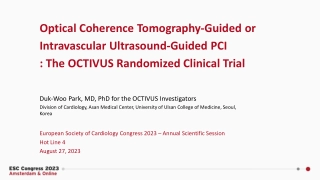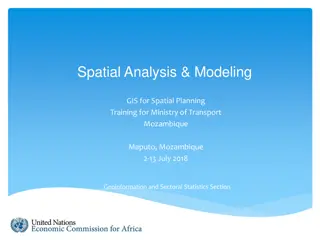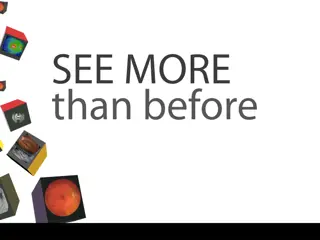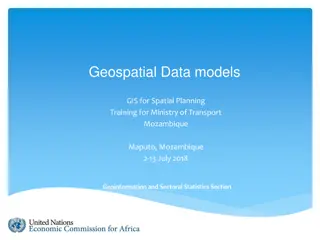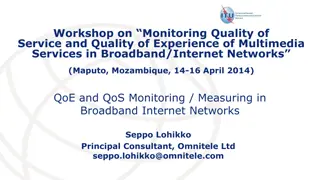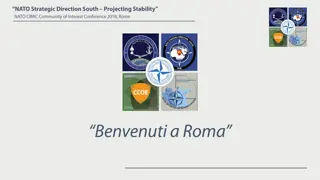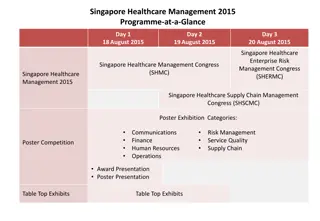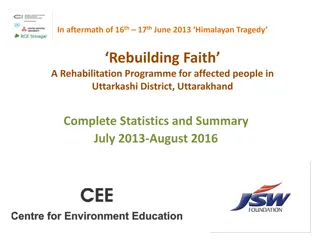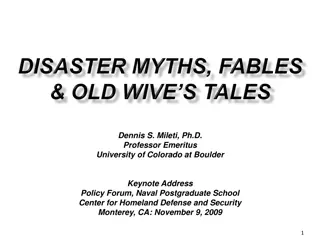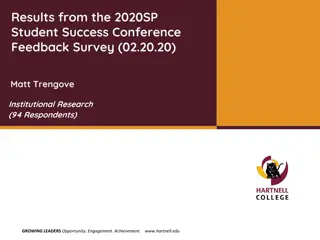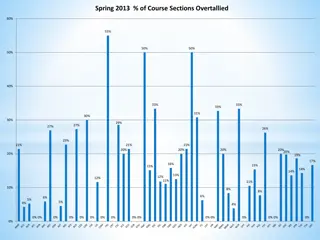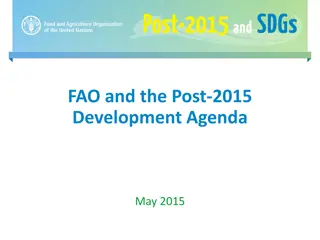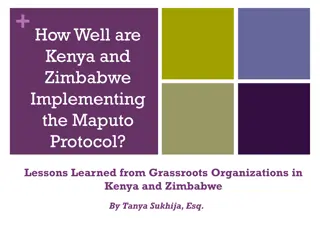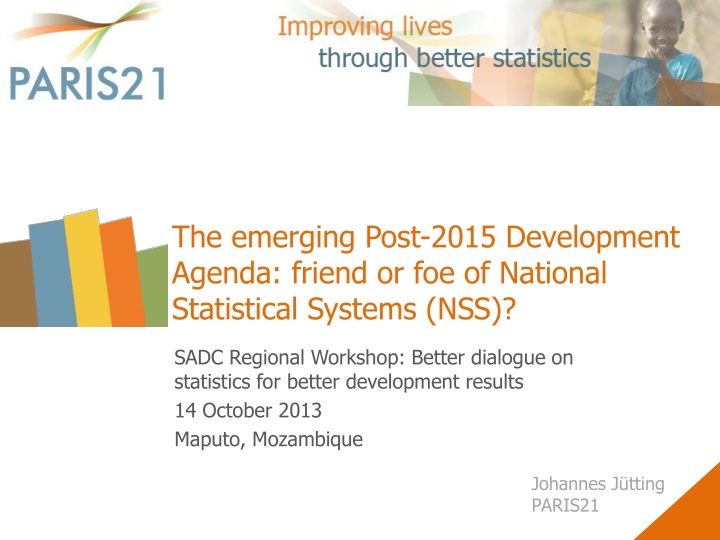
Challenges and Priorities in National Statistical Systems Post-2015 Development Agenda
This presentation discusses the impact of the MDG process on national statistical systems, focusing on achievements and challenges. It explores the alignment of global monitoring needs with national systems, communication challenges, and lessons learned. Additionally, it addresses emerging priorities for the post-2015 development agenda, highlighting the need for universal sustainable development goals. The content emphasizes the importance of data use, coordination, and strategic approaches in enhancing national statistical capacity.
Download Presentation

Please find below an Image/Link to download the presentation.
The content on the website is provided AS IS for your information and personal use only. It may not be sold, licensed, or shared on other websites without obtaining consent from the author. If you encounter any issues during the download, it is possible that the publisher has removed the file from their server.
You are allowed to download the files provided on this website for personal or commercial use, subject to the condition that they are used lawfully. All files are the property of their respective owners.
The content on the website is provided AS IS for your information and personal use only. It may not be sold, licensed, or shared on other websites without obtaining consent from the author.
E N D
Presentation Transcript
The emerging Post-2015 Development Agenda: friend or foe of National Statistical Systems (NSS)? SADC Regional Workshop: Better dialogue on statistics for better development results 14 October 2013 Maputo, Mozambique Johannes J tting PARIS21
National Statistical Systems & Post-2015 1. WHAT LESSONS FROM THE MDG PROCESS ? 2. WHAT PRIORITIES ARE EMERGING FOR POST- 2015? 3. FRIEND OR FOE OF NSS? (2
Achievements Increased data use & enhancing status of data. Great strides in fostering co-ordination (evidence: BAPS, PRESS, regional, within country-donor partnerships). NSDSs design and implementation. Dissemination of micro-data and co-ordination of surveys (ADP and IHSN achievements). 1 (4
Misalignment: global monitoring needs and national systems Percentage of pupils starting Grade 1 who reach last grade of primary UN Administrative NSO 100 90 80 70 60 50 40 30 20 10 0 (9 (5
Some statistics left behindand communication challenges (6 Source: Ghana Statistical Service, 2013
Lessons learnt MDG monitoring overall positive impact on national capacity More surveys, data and statistics available Countries following up after donors left Statistical capacity efforts NSDS as strategic approach but created some new problems National data often not used Methodological issues reconciliation, estimation Crowding out ? donors (dis?)incentives 1 (7
New goals arent being negotiated yet Special Event on Post-2015 at 68th UNGA (Sept 2013) call for one set of universal goals for sustainable development OWG on Sustainable Development Launched at RIO+20, will delivery final report at 69th UNGA Committee of Experts on SD Financing Launched at RIO+20, will delivery final report at 69th UNGA Official launch of intergovernmental negotiations of Post-2015 framework 69th UNGA (Sept 2014) 70th UNGA (Sept 2015) Special High-level Event on Post- 2015 framework (9
NSSs will be in the spotlight: a call to actions from the highest level WANTED: a Data Revolution A true data revolution would draw on existing and new sources of data to fully integrate statistics into decision making, promote open access to, and use of, data and ensure increased support for statistical systems. (10
Sound familiar? Call for data revolution comes from Busan Action Plan on Statistics, that seeks to : Fully integrate statistics in decision making Promote open access to and use of data Increase resources for statistical systems 1 (11
Some priorities are emerging, with important consequences for NSSs For example: More use of national data for new goals: Jobs Education (potentially on quality) 69th UNGA Disaggregation of existing data to measure: Getting to zero poverty Impact on women and girls Impact on inequality New indicators for new areas: Sustainable development Governance (12
Strengthening national capacity is a key element of any data revolution National ownership, benefit the people, build on what we have Reduces the risk of crowding out / in ; unsustainable financing Better data, better policies? Innovations not only in data but also in capacity building e.g. skill development (14
New demands for NSS New data needs, e.g. as outlined above New institutional arrangements/ opening up Use of new technology (15
From dialogue to partnerships? Private official Public non- official User Producer (16
Friend or Foe? We dont know, yet YOU need to get engaged on various levels national, regional and international! For NSSs, key debates are: Short-term need for baseline vs. long-term need for measurement capacity Data for national/sub-national decision marking and targeting vs. international comparison (18
Conclusion: Historic window of opportunity to garner support for NSS Political will to support statistics at an historic high Public/ popular support also growing fast with new actors keen to support good data - Foundations, CSOs, private companies Statistics needed to manage emerging challenges like financial stability and climate change New tools/approaches create new opportunities (19
Are YOU ready to address the challenge? (20
www.paris21.org For more information contact@paris21.org FOLLOW US ON

